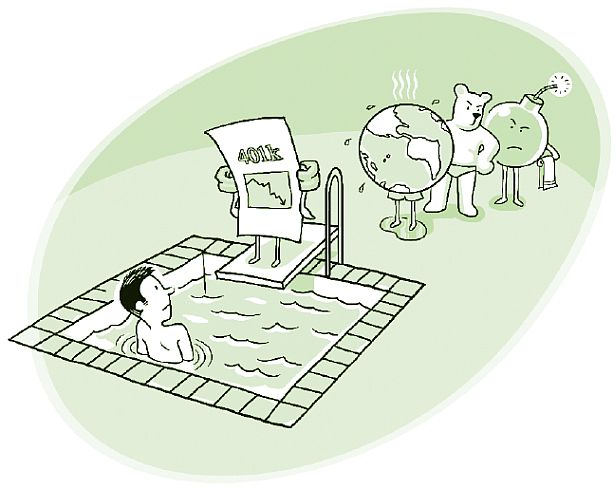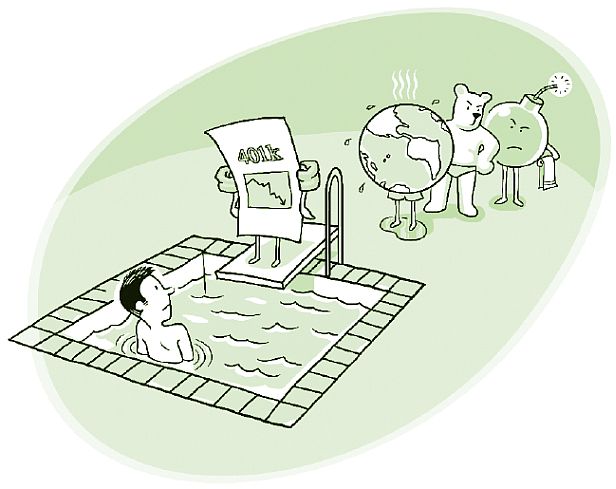Do people care less about global warming during recessions? University of California economists Matthew Kahn and Matthew Kotchen have a new paper that uses three interesting measurements to suss out the relationship between “Environmental Concern and the Business Cycle.”
Here’s what they found:
We find that an increase in a state’s unemployment rate decreases Google searches for “global warming” and increases searches for “unemployment,” and that the effect differs according to a state’s political ideology.
From national surveys, we find that an increase in a state’s unemployment rate is associated with a decrease in the probability that residents think global warming is happening and reduced support for the U.S to target policies intended to mitigate global warming.
Finally, in California, we find that an increase in a county’s unemployment rate is associated with a significant decrease in county residents choosing the environment as the most important policy issue.
 Illustration courtesy Ian Webster/CREDThe phenomenon is nothing new. Polls that ask people to rank their biggest concerns tend to find that when people worry more about finances, they say they worry less about the environment. The way to understand these findings is through the idea of a “finite pool of worry.” Psychologists find that people can only muster so much worry-energy, no matter how many threats they face. If a visceral, immediate threat arises (like unemployment), less immediate threats (global warming) get less attention:
Illustration courtesy Ian Webster/CREDThe phenomenon is nothing new. Polls that ask people to rank their biggest concerns tend to find that when people worry more about finances, they say they worry less about the environment. The way to understand these findings is through the idea of a “finite pool of worry.” Psychologists find that people can only muster so much worry-energy, no matter how many threats they face. If a visceral, immediate threat arises (like unemployment), less immediate threats (global warming) get less attention:
In one study, farmers in Argentina rated how much they worried about political risks, weather and climate risks, and economic risk. They were then shown a climate forecast predicting a rain shortage the next spring. As their concern about climate increased, their concern about political instability diminished, even though the political situation had not changed.
But that doesn’t mean the actual threat of climate change is diminishing.
(The Center for Research on Environmental Decisions at Columbia University, which conducted the Argentina study, does great work on the psychology of climate change.)



